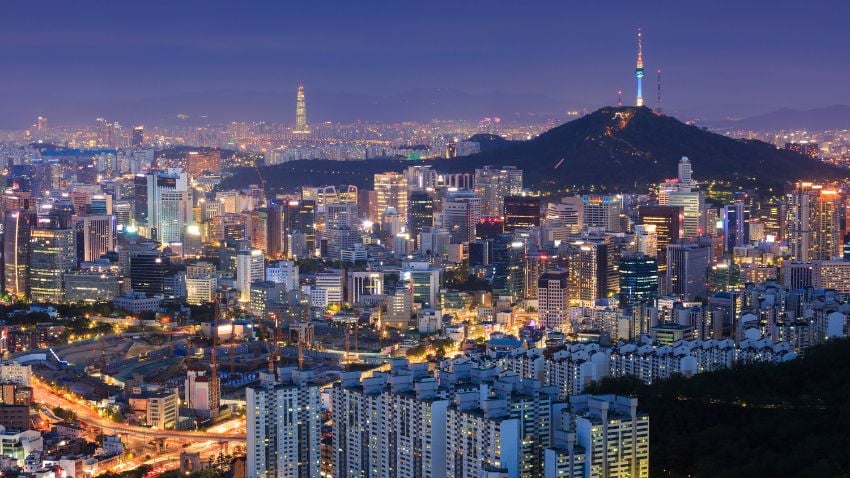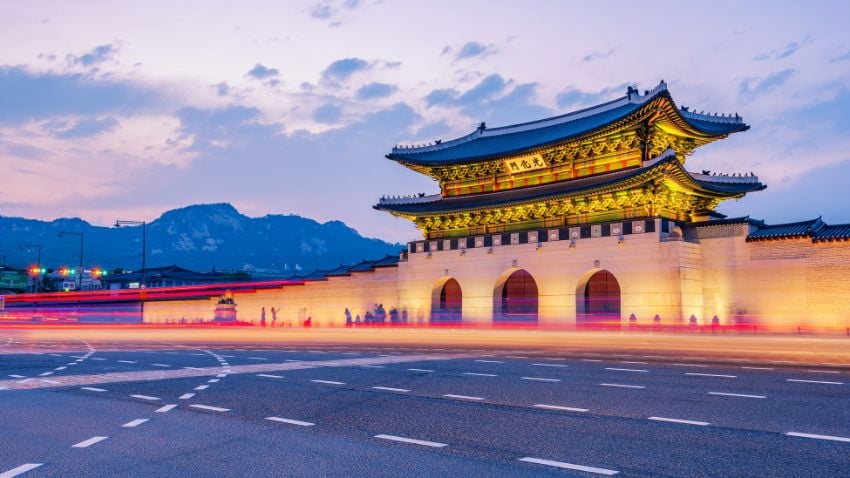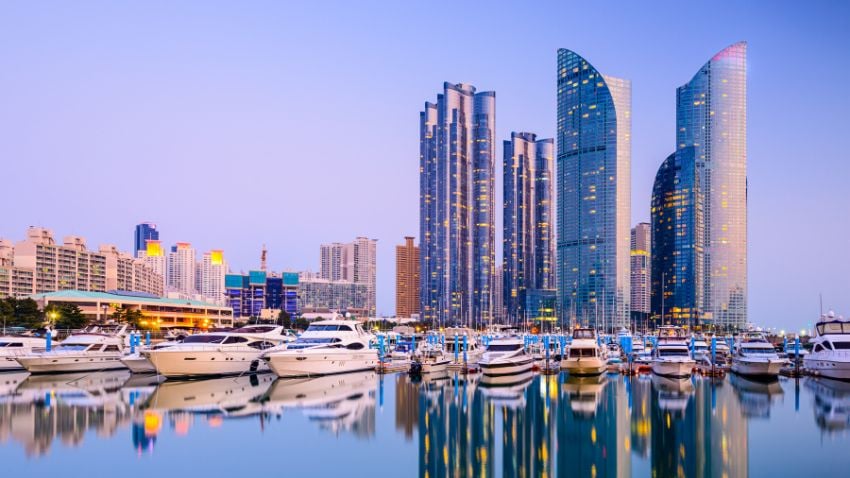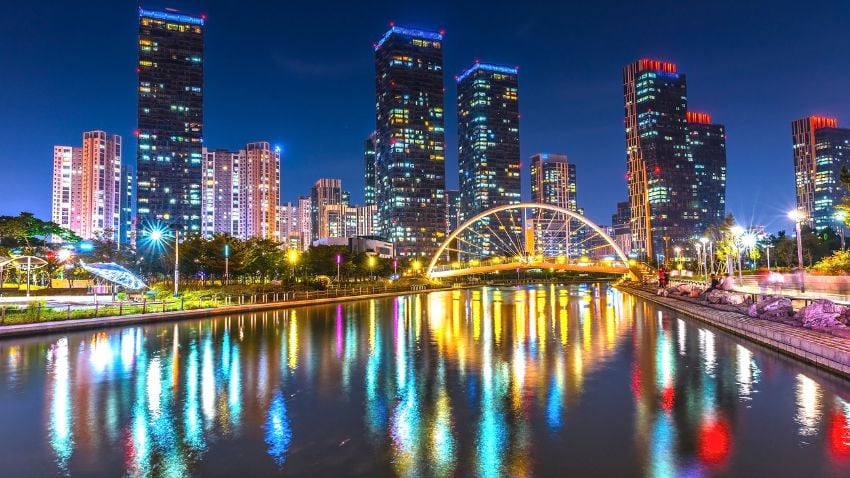Top Things To Do In Panama In 2026
Panama’s geographic size is modest, but its global relevance is not. The country connects two oceans and two continents, operates on a dollarized...

6 min read
South Korea may soon be the second North Asian country to offer digital nomads the opportunity to spend years living there. The government aims to make 2023-2024 massive years for its tourism industry, to help the economy recover from the slump during the Covid pandemic isolation. This visa is designed to attract freelancers, digital nomads, KPOP enthusiasts, and corporate professionals. The government has launched the workation visa, as known as Working Holiday Visa (H-1), which allows digital nomads to live in South Korea. South Korea has abundant tourist attractions, including beaches, mountains, temples, and museums, and it is easy to travel around due to the smaller land mass.
The Korean digital nomad visa attracts remote workers and freelancers from around the world and aims to provide opportunities for individuals to live and work in South Korea while immersing themselves in the vibrant culture and language of the country. The digital nomad visa is particularly appealing to English-speaking workers as it allows them to experience a unique workcation, combining work and vacation in a foreign location.
The digital nomad visa offers various types of arrangements depending on the individual's needs and preferences. For those interested in exploring the thriving K-pop and Hallyu scene, there are options to participate in K-culture training programs, where individuals can gain insights into the entertainment industry and learn about Korean music, dance, and fashion. Such programs add an exciting dimension to the workcation experience, allowing participants to immerse themselves in the local culture while pursuing their professional goals.

Gyeongbokgung Palace is a famous place in Seoul to visit while there
South Korea has traditionally been more popular with expats working in South Korea, and it has been harder for digital nomads to access due to visa restrictions. However, the country has many features that have attracted the interest of digital nomads. These benefits include an acceptable cost of living, natural attractions, reliable internet, solid public transportation, and other amenities to support remote working.
South Korea is a relatively affordable place for digital nomads to live, especially if they live outside of major cities like Seoul. The country’s minimum wage is around $7.70 USD/hour, slightly lower than most Western countries. It is easy to find rooms and studio apartments in the $300-600 USD/month range in relatively smaller South Korean cities, while rent in Seoul may be more expensive.
If you do not know Korea, Seoul and Busan are likely two of your best options. Busan is an interesting second option, as the city has a mixture of coastal and mountain scenery and a population of only 3.5 million. If you are feeling more adventurous and want to explore other options, there are plenty of cities to consider, and the next eight largest cities have a population between 850,000-3 million.
South Korea also has acceptable internet speed, as the average fixed broadband download speed is 95.74 Mbps. South Korea is also ranked 7th globally for its mobile internet download speed.
South Korea is about the size of the US state of Indiana, so it is easy to arrange day or weekend trips if you are interested in exploring the country. The country is ranked 4th globally for railroad infrastructure quality, and there are plenty of domestic flight options as well.
Related content: What Is A Digital Nomad Visa, And How Can You Get One?

Busan is a popular destination for being a mixture of coastal and mountain scenery
The government hopes to attract 30 million visitors annually by boosting its tourism industry and offering this digital nomad visa to long-term visitors. South Korea plans to launch many new visa programs to attract long-term visitors and digital nomads.
The Working Holiday Visa is intended to enable visitors to enjoy a holiday or vacation in South Korea while also giving them the unique opportunity to work there. However, the visa comes with a restriction that limits the amount of work to 1300 hours over the one-year stay. It is not permissible to work in specialized fields such as medicine and engineering or in entertainment-related roles, such as singing, athletics, music, or acrobatics. This visa is particularly suitable for digital nomads who desire to spend an extended period in South Korea and fully engage in its culture.
The Working Holiday Visa is limited to specific countries, with each country having a maximum amount of visitors allowed on this visa for example; the UK is allowed 1000 citizens to get this visa. An individual holding an H-1 visa can stay in South Korea for up to one year from their arrival date. Moreover, they have the flexibility to enter South Korea within a minimum of 3 months after the visa's issuance.
Many people from Western and Asian countries, like Brazil, Portugal, Indonesia and Thailand, are extremely interested in KPOP culture and are interested in travelling to South Korea because of this; for example, the group BTS (Bangtansonyodan / 방탄소년단) is one of the most famous group in the world. The government plans to launch a visa that allows people to travel to South Korea to explore this culture and attend events.
Another government motive is to help attract foreign talent in key areas of the economy, such as hospitality. For example, the government plans to change laws to increase the number of foreign employees allowed for certain businesses, such as hotels. If you are interested in working for a local company in South Korea, entering the country on this digital nomad visa could be a good way to network locally and explore options. You would need to get a different visa if you decided to transition from being a digital nomad to a local employee. However, whether the South Korean government will prohibit local employment on these visas is unclear. Taiwan’s Employment Gold Card is an interesting benchmark as it allows applicants to be digital nomads or local employees once accepted.
Employers in South Korea are also starting to recognize the benefits of having digital nomad visa holders in their workforce. These individuals bring a fresh perspective, diverse skill sets, and international experiences to the table. As a result, more employers are embracing the concept of remote work and are willing to offer flexible arrangements to accommodate digital nomads, providing them with an opportunity to contribute their expertise to Korean companies while enjoying the rich cultural experiences the country has to offer.
Related content: The Basics Of How To Get A Second Passport Or A Second Residency

You can visit Songdo Central Park in Incheon with your digital nomad visa
You can apply for this visa online at any time through K-ETA. Electronic Travel Authorization is mandatory for nationals or citizens of 66 visa-free countries and 46 designated visa-free countries planning to travel to Korea. However, due to covid-19, as of September 1, 2021, only nationals of 49 countries/regions can apply for K-ETA.
When applying for the digital nomad visa, applicants need to provide certain details and proof to demonstrate their eligibility. These may include a valid passport, proof of employment or freelance work, a detailed itinerary of their stay, and proof of sufficient funds to support themselves during their time in South Korea. It's essential to keep in mind that the visa holders are not allowed to work for Korean employers or on Korean projects, as the visa is primarily designed for remote work or freelancing for clients outside of South Korea.
Before applying for this visa, you must know which documents and requirements are needed:
The government has launched a system known as K-ETA, which allows digital nomads to upload travel, criminal background, insurance, and medical information. This expedites the application process, which can be done online.
One of the significant advantages of the digital nomad visa is that it opens up new possibilities for both workers and tourists. It allows travelers to experience the vibrant cities and breathtaking landscapes of South Korea while continuing their professional pursuits. Additionally, for those already studying in South Korea on student visas, the digital nomad visa offers a chance to extend their stay and explore career opportunities without having to change their visa status.
Digital nomads must provide health insurance, a criminal background check, and other documentation supporting their work and stay in South Korea:
The processing time of documents depends on the workload of South Korean embassies in different countries. But it can be said that it takes an average of 7 to 10 working days to review the documents and issue the visa.
The application fee depends on the embassy where you are applying. Canadian citizens who apply at the Vancouver embassy, for example, have to pay around $82 USD. So I recommend you get this information from your country's embassy.

Changdeokgung Palace, Seoul, South Korea
South Korea offers an excellent balance of high-quality infrastructure and amenities coupled with acceptable living costs. This country is a wonderful destination for digital nomads who want to spend time in Asia. While becoming a resident or citizen by investing in South Korea is very difficult, the government still appears committed to allowing foreigners to stay long-term in South in 2023. This digital nomad visa is a great option to take advantage of, especially as regional options in countries like Japan and China are not available.
South Korea's digital nomad visa provides an excellent opportunity for remote workers and freelancers to experience the country's unique blend of work and culture. By combining work and vacation, individuals can make the most of their time in South Korea, immersing themselves in the local language and K-culture training programs. Whether it's exploring the world of K-pop, indulging in delicious cuisine, or marveling at the country's stunning landscapes, digital nomads in South Korea can truly have the best of both worlds.
Embark on a transformative journey of knowledge and inspiration by seizing the opportunity to purchase the ultimate Digital Nomad Visa book today.
If you want the best intel from the expat world, including profitable offshore opportunities, little-known tax-saving strategies, and hard-won insights on immigration, passports, and Plan-B residencies, all delivered to your inbox every single week, then join our daily correspondence, EMS Pulse®. Currently enjoyed by over 84,000 expats and expat-hopefuls worldwide. Fill in the form below to join our newsletter free:

Written by Mikkel Thorup
Mikkel Thorup is the world’s most sought-after expat consultant. He focuses on helping high-net-worth private clients to legally mitigate tax liabilities, obtain a second residency and citizenship, and assemble a portfolio of foreign investments including international real estate, timber plantations, agricultural land and other hard-money tangible assets. Mikkel is the Founder and CEO at Expat Money®, a private consulting firm started in 2017. He hosts the popular weekly podcast, the Expat Money Show, and wrote the definitive #1-Best Selling book Expat Secrets - How To Pay Zero Taxes, Live Overseas And Make Giant Piles Of Money, and his second book: Expats Guide On Moving To Mexico.

Panama’s geographic size is modest, but its global relevance is not. The country connects two oceans and two continents, operates on a dollarized...

Honduras’ newly elected president, Nasry Asfura of the conservative National Party, was sworn in on January 27, 2026. The election, held on November...

For a growing number of Americans, cost-of-living math no longer works. Housing feels harder to reach, everyday costs keep climbing, and long-term...